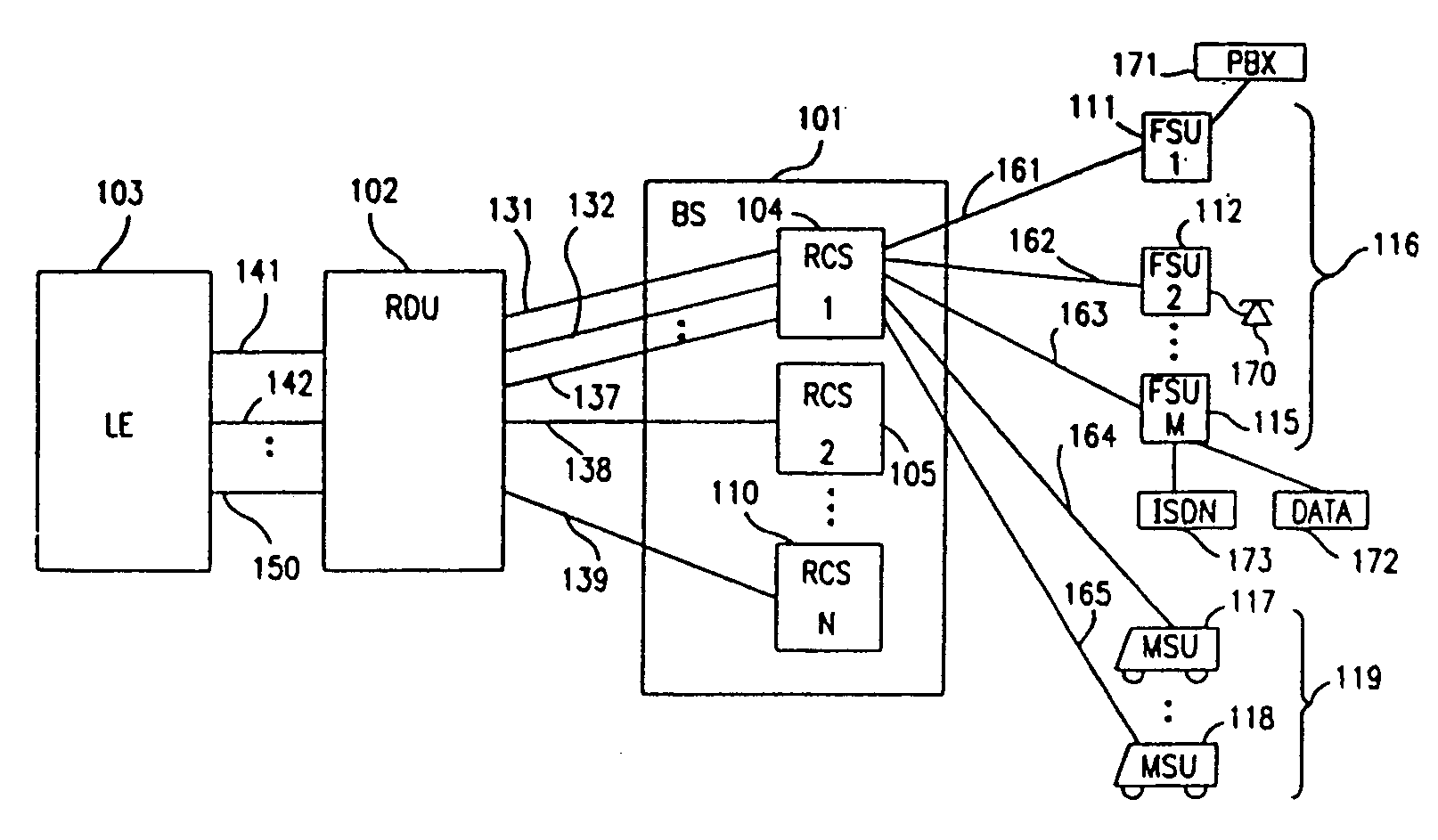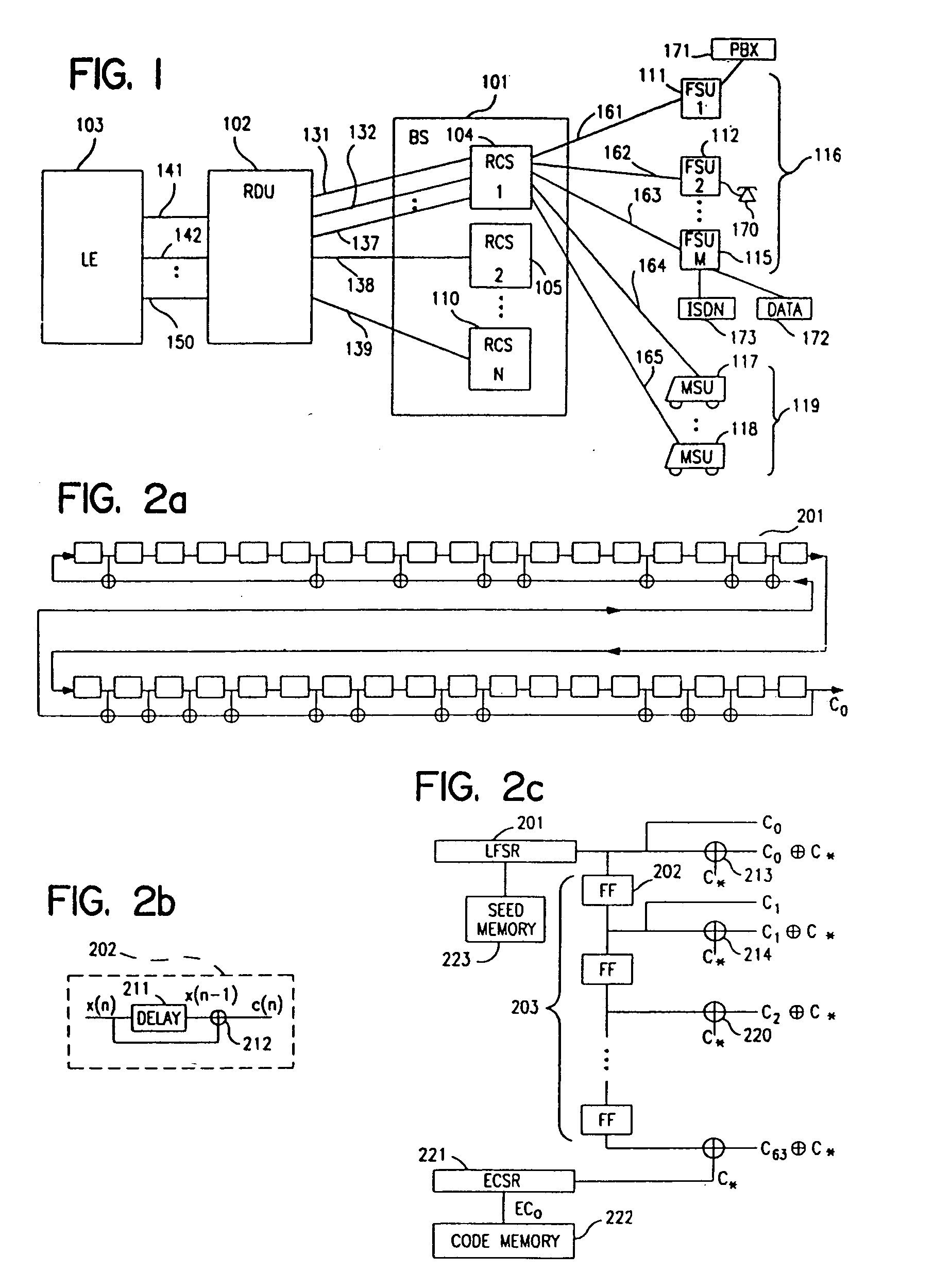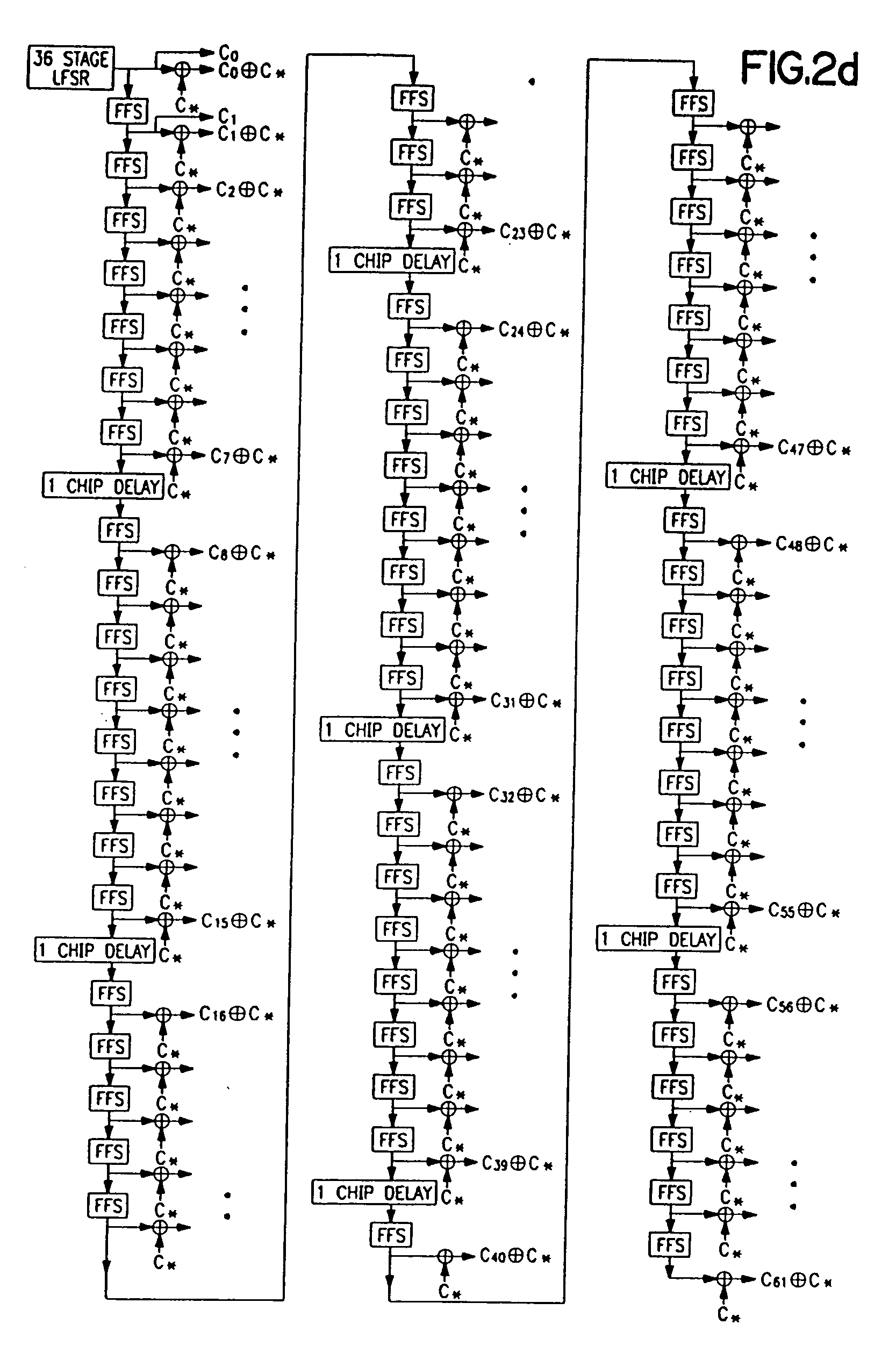Initial power control for spread-spectrum communications
a spread-spectrum communication and power control technology, applied in the field of spread-spectrum communication, can solve the problems of inability to track the maximum of f(t), inability to know the correct pilot spreading code, and excessive time consumption, and achieve the effect of increasing the efficient utilization of the bearer message channel
- Summary
- Abstract
- Description
- Claims
- Application Information
AI Technical Summary
Benefits of technology
Problems solved by technology
Method used
Image
Examples
Embodiment Construction
)
[0116] I. General System Description
[0117] The system of the present invention provides local-loop telephone service using radio links between one or more base stations and multiple remote subscriber units. In the exemplary embodiment, a radio link is described for a base station communicating with a fixed subscriber unit (FSU), but the system is equally applicable to systems including multiple base stations with radio links to both FSUs and mobile subscriber units (MSUs). Consequently, the remote subscriber units are referred to herein as subscriber units (SUs).
[0118] Referring to FIG. 1, base station (BS) 101 provides call connection to a local exchange (LE) 103 or any other telephone network switching interface, such as a private branch exchange (PBX) and includes a radio carrier station (RCS) 104. One or more RCSs 104, 105, 110 connect to a radio distribution unit (RDU) 102 through links 131, 132, 137, 138, 139, and RDU 102 interfaces with LE 103 by transmitting and receiving...
PUM
 Login to View More
Login to View More Abstract
Description
Claims
Application Information
 Login to View More
Login to View More - R&D
- Intellectual Property
- Life Sciences
- Materials
- Tech Scout
- Unparalleled Data Quality
- Higher Quality Content
- 60% Fewer Hallucinations
Browse by: Latest US Patents, China's latest patents, Technical Efficacy Thesaurus, Application Domain, Technology Topic, Popular Technical Reports.
© 2025 PatSnap. All rights reserved.Legal|Privacy policy|Modern Slavery Act Transparency Statement|Sitemap|About US| Contact US: help@patsnap.com



